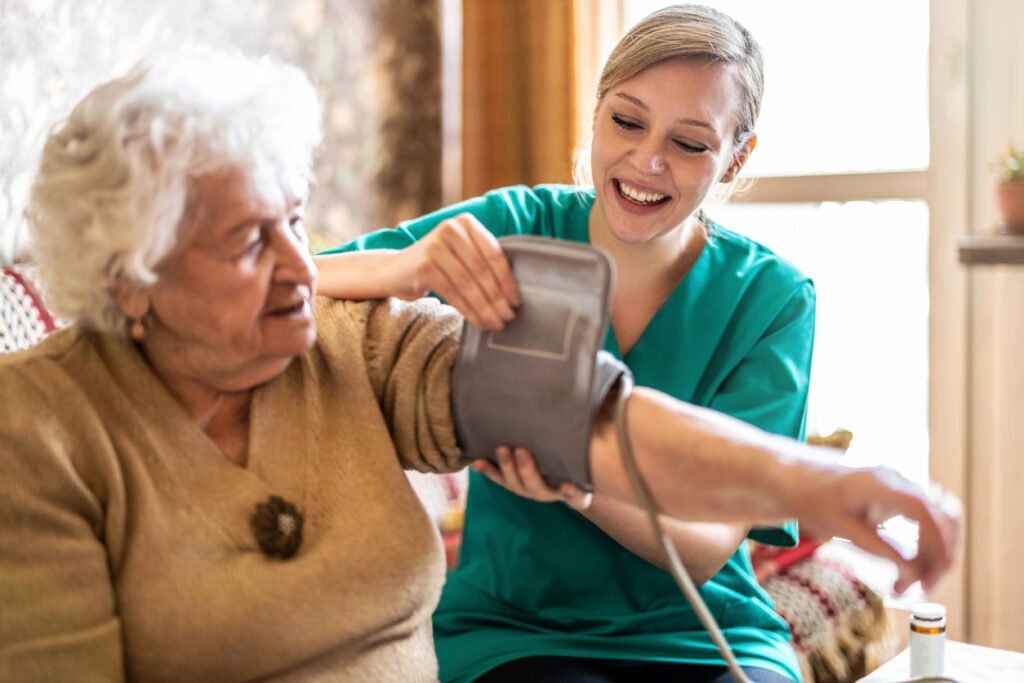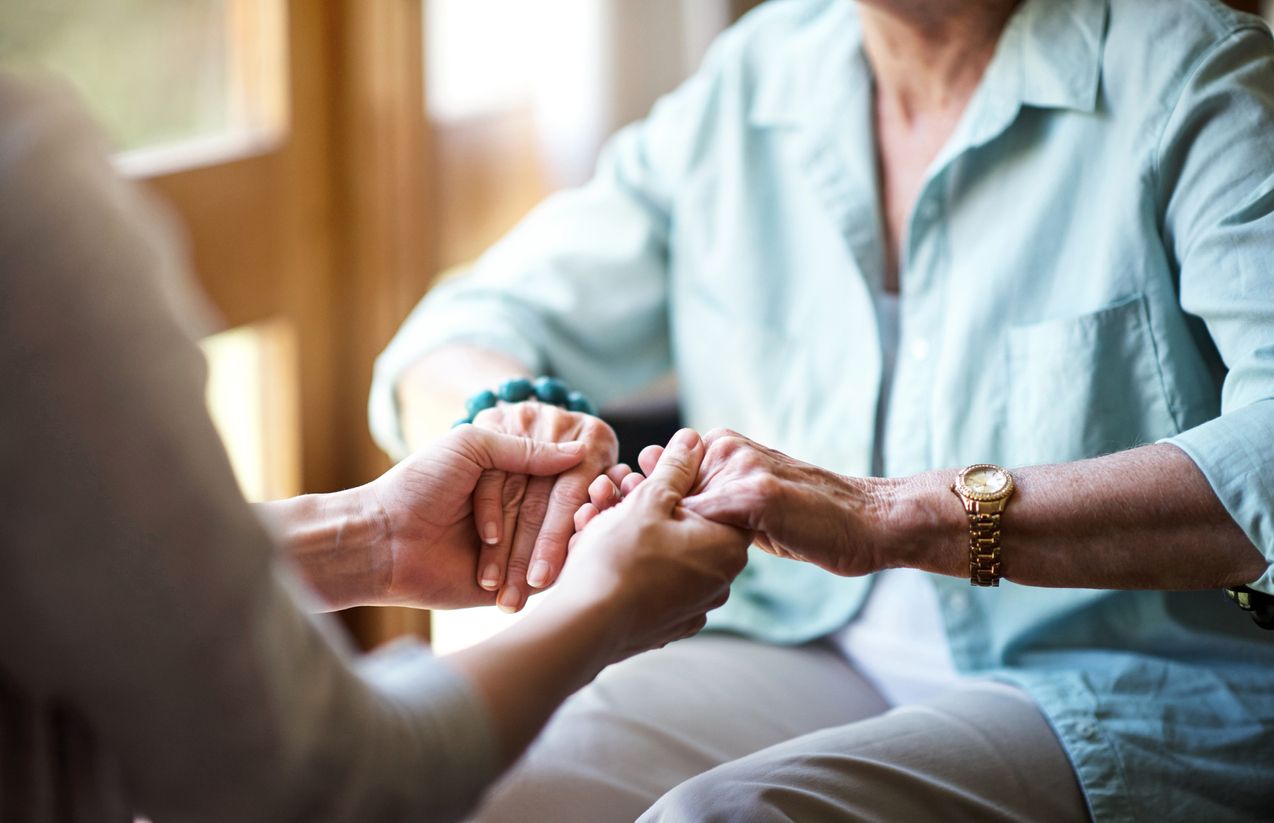Live Life to the Fullest: Tips for Healthy Aging
 Leawood, Kansas – Healthy aging is about much more than staying physically healthy—it’s about maintaining your sense of purpose and your zest for life. While the specific ingredients of healthy aging are different for everyone, the common factors are good mental health and the ability to manage stress. Knowing the basic formula for healthy aging will help you live with meaning and joy throughout your senior years.
Leawood, Kansas – Healthy aging is about much more than staying physically healthy—it’s about maintaining your sense of purpose and your zest for life. While the specific ingredients of healthy aging are different for everyone, the common factors are good mental health and the ability to manage stress. Knowing the basic formula for healthy aging will help you live with meaning and joy throughout your senior years.
Coping with change
As you age, it’s important to build your resilience and find healthy ways to cope with challenges. This ability will help you make the most of the good times and keep your perspective when times are tough.
- Focus on the things you’re grateful for. The longer you live, the more you lose. But as you lose people and things, life becomes even more precious. When you stop taking things for granted, you appreciate and enjoy what you have even more.
- Acknowledge and express your feelings. You may have a hard time showing strong emotions, perhaps feeling that such a display is inappropriate and weak. But burying your feelings can lead to anger, resentment, and depression. Don’t deny what you’re going through. Find healthy ways to process your feelings, perhaps by talking with a close friend or writing in a journal.
- Accept the things you can’t change. Many things in life are beyond our control. Rather than stressing out over them, focus on the things you can control such as the way you choose to react to problems. Face your limitations with dignity and a healthy dose of humor.
- Look for the silver lining. As the saying goes, “What doesn’t kill us makes us stronger.” When facing major challenges, try to look at them as opportunities for personal growth. If your own poor choices contributed to a stressful situation, reflect on them and learn from your mistakes.
- Take daily action to deal with life’s challenges . When challenges seem too big to handle, sweeping them under the carpet often appears easier. But ignoring the problem doesn’t make it go away; it allows both the problem and your anxiety to build. Instead, take things one small step at a time. Even a small step can go a long way to boosting your confidence and reminding you that you are not powerless.
Find activities that you enjoy
Everyone has different ways of experiencing meaning and joy, and the activities you enjoy may change over time. If you’re not sure where to get started, try some of the following suggestions:
- Pick up a long-neglected hobby
- Play with your grandchildren or a favorite pet
- Learn something new (an instrument, a foreign language, a new game)
- Get involved in your community (volunteer or attend a local event)
- Take a class or join a club
- Go on a weekend trip to a place you’ve never visited
- Spend time in nature (take a walk, go fishing, enjoy a scenic view)
- Enjoy the arts (visit a museum, go to a concert or a play)
The possibilities are endless. The important thing is to find activities that are both meaningful and enjoyable. Whatever your preference, taking time to nourish your spirit is never wasted.
Stay connected
One of the greatest challenges of aging is how your support network changes. Staying connected isn’t always easy as you grow older—even for those who have always had an active social life. Retirement, illness, death, and moves can take away close friends and family members. And the older you get, the more people you lose. What’s more, getting around may be difficult.
But it’s important to find ways to reach out and connect to others. Loneliness and isolation are major threats to aging well. Having people you can turn to for company and support is a buffer against depression, disability, hardship, and loss.
The good news is that there are lots of ways to be with other people. It doesn’t matter what you do, so long as you get out of the house (if possible) and socialize:
- Connect regularly with friends and family. Spend time with people you enjoy and who make you feel upbeat. It may be a neighbor who you like to walk with, a lunch date with an old friend, or shopping with your children. Even if you are not close by, call or email frequently to keep relationships fresh.
- Make an effort to make new friends . As you lose people in your circle, it is vital to make new connections so your circle doesn’t dwindle. Make it a point to befriend people who are younger than you. Younger friends can reenergize you and help you see life from a fresh perspective.
- Spend time with at least one person every day. You shouldn’t be alone day after day. Phone or email contact is not a replacement for spending time with other people. Regular face-to-face contact helps you ward off depression and stay positive.
- Volunteer. Giving back to the community is a wonderful way to strengthen social bonds and meet others, and the meaning and purpose you find in helping others will enrich and expand your life. Volunteering is a natural way to meet others interested in similar activities or who share similar values. Even if you’re housebound, you can get involved by volunteering on the phone.
- Find support groups in times of change. If you or a loved one is coping with a chronic illness or recent loss, it can be very helpful to participate in a support group with others undergoing the same challenges.
Keep your mind sharp
There are many good reasons for keeping your brain as active as your body. Keeping your brain active and maintaining creativity actually may help to prevent cognitive decline and memory problems. The more you use and sharpen your brain, the more benefits you will get.
- Try variations on what you know. For some people, it might be games. Other people may enjoy puzzles. Still others may enjoy trying out new cooking recipes. Find something that you enjoy and continue to try new variations and challenges. If you like crosswords, move to a more challenging crossword series or try your hand at a new word game. If you like to cook, try a completely different type of food, or try baking if you’ve mostly been cooking over the stove.
- Work something new in each day. You don’t have to work elaborate crosswords or puzzles to keep your memory sharp. Try to work in something new each day, whether it is taking a different route to the grocery store or brushing your teeth with a different hand.
- Take on a completely new subject. Taking on a new subject is a great way to continue to learn. Have you always wanted to learn a different language? Learn new computer skills? Learn to golf? There are many inexpensive classes at community centers or community colleges that allow you to tackle new subjects. Volunteering is also a great way to learn about a new area. Taking classes and volunteering is a great way to boost social connections, which is another brain strengthener.
Boost your vitality through diet and exercise
As you age, your relationship to food changes along with your body. A decreased metabolism, changes in taste and smell, and slower digestion may affect your appetite, the foods you can eat, and how your body processes food. The key is to figure out how to adapt to your changing needs. Now, more than ever, healthy eating is important to maintain your energy and health.
- Load up on high-fiber fruits, vegetables, and whole grains . Your whole digestive system is slower, so fiber is very important. Consume fiber-rich foods such as whole grains, fruit, and vegetables. They will help you feel more energetic and give you fuel to keep going.
- Put effort into making your food look and taste good . Your tastebuds aren’t as strong and your appetite may not be the same, but your nutritional needs are just as important as ever. If you don’t enjoy eating like you used to, put a little more effort into your meals, including the way you flavor, prepare, and present your food.
- Watch out for dehydration . Because of physical changes, older adults are more prone to dehydration. So make sure you are drinking plenty of fluid, even if you don’t feel thirsty. If you’re not getting enough water, you’re not going to be as sharp and your energy will suffer.
Many older adults don’t exercise. However, exercise is vital for healthy aging. It helps you maintain your strength and agility, gives your mental health a boost, and can even help diminish chronic pain. Whether you are generally healthy or are coping with an ongoing disability or health problem, regular exercise will help you stay physically and mentally healthy and improve your confidence.
- Check with your doctor before starting any exercise program . Find out if any health conditions or medications you take affect what exercise you should choose.
- Find an activity you like and that motivates you to continue . You may want to exercise in a group, like in a sport or class, or prefer a more individual exercise like swimming.
- Start slow. If you are new to exercise, a few minutes a day puts you well on the way towards building a healthy habit. Slowly increase the time and intensity to avoid injury.
- Walking is a wonderful way to start exercising . Exercise doesn’t have to mean strenuous activity or time at the gym. In fact, walking is one of the best ways to stay fit. Best of all, it doesn’t require any equipment or experience and you can do it anywhere.
The post Live Life to the Fullest: Tips for Healthy Aging appeared first on Kansas City Home Care.
REQUEST FREE
IN HOME ASSESSMENT
REQUEST FREE IN HOME ASSESSMENT









